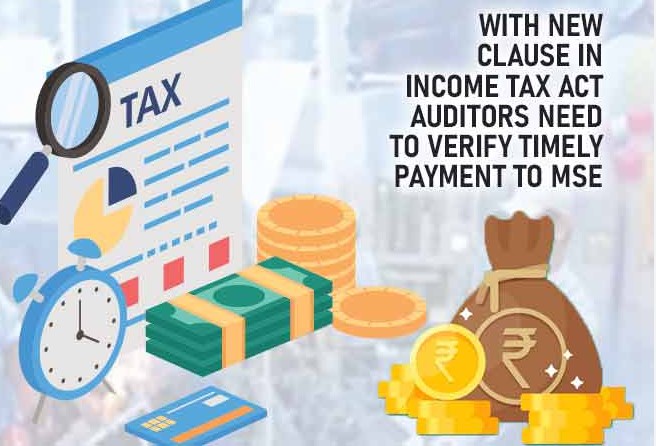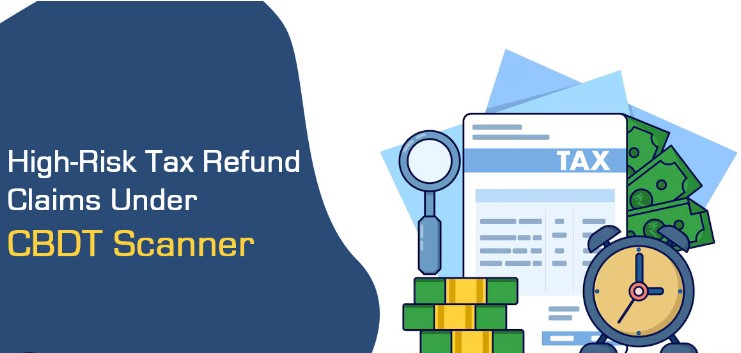
MSME delayed payments - What to examine while finalizing the Tax Audit Report
Published In : EvoBreyta Download
Author : Navneet Singal
MSME delayed payments: What to examine while finalizing the Tax Audit Report
The Central Board of Direct Taxes (CBDT) has recently revised Form 3CD to incorporate specific reporting requirements under Clause 22 concerning payments covered by Section 43B(h) of the Income-tax Act. Effective from the Assessment Year (AY) 2024-25, these changes emphasize the need for timely payments to Micro and Small Enterprises (MSEs) as per the stipulations of the Micro, Small, and Medium Enterprises Development (MSMED) Act, 2006.
This blog delves into important points regarding the reporting of amounts disallowable under Section 43B(h) in Clause 22 by the tax auditor:
(1) No prescribed reporting format: In amended Clause 22, no format is specified for reporting amounts disallowable under Section 43B(h).
(2) Break-up/details not required: Only the total amounts liable to be disallowed under Section 43B(h) are required to be indicated in Clause 22. Break-up of amounts liable to be disallowed under Section 43B(h) or details of delayed payments that are liable to be disallowed under Section 43B(h) are not required to be given against Clause 22.
(3) Tax auditor’s opinion on disallowability: Clause 22 does not require merely reporting delayed payments to MSEs, i.e., payments made to them beyond the due date under Section 15 of the MSMED Act. It requires the tax auditor to form an opinion on the disallowability of such payments under Section 43B(h). Section 43B(h) comes into play only when deduction in respect of the amount payable to MSEs is otherwise allowable under the Income-tax Act.
(4) Verify whether amounts are otherwise admissible: The tax auditor needs to verify whether the amounts due to MSEs are otherwise admissible in terms of Sections 30 to 37(1) and are not liable to be disallowed under the Explanations below Section 37(1), Section 40, or Section 40A.
(5) No need to report delayed payments that are liable to be disallowed otherwise: If any amounts payable to MSE are not otherwise allowable in terms of Sections 30 to 37(1), or are liable to be disallowed in terms of Explanation 1/Explanation 2/Explanation 3 below Section 37(1) or in terms of Section 40 or Section 40A, there is no need to report the amounts under amended Clause 22.
(6) Reporting of delays in payments of amounts outstanding as of 31-03-2024: Where payments of the outstanding amount as of 31-03-2024 are made after 31-03-2024 beyond the due date under Section 15 of the MSMED Act, these are to be reported in amended Clause 22 even if they are made on or before the due date under Section 139(1). This will cover amounts outstanding at the balance sheet date which have already become overdue as of the balance sheet date, as well as amounts outstanding at the balance sheet date, which become overdue after the balance sheet date. Of course, reporting is required only if otherwise allowable, as explained above. The interest payable under Section 16 of MSMEDA for these delayed payments is also to be reported in Clause 22 as such interest is inadmissible under Section 23 of the MSMED Act.
(7) Delayed payments made on or before 31-03-2024: There is no question of reporting in Clause 22 as these amounts paid on or before 31-03-2024, even if paid after the due date specified under the MSMED Act, can be claimed on an actual payment basis. However, interest on such delayed payments under Section 16 of the MSMED Act will have to be calculated, and such interest will have to be reported under Clause 22 as amounts inadmissible under Section 23 of the MSMED Act.
(8) Reporting in respect of assessee following cash basis of accounting: There is no question of reporting any amounts disallowable under Section 43B(h) in respect of such assesses under Clause 22 since they will anyway claim deductions for such amounts on actual payment basis only. Interest on delayed payments to MSEs payable under Section 16 of the MSMED Act will be liable to be disallowed under Section 23 of the MSMED Act only when these are debited to the profit and loss account on a cash basis in the year of payment. However, disclosures under Section 22 of the MSMED Act in respect of amounts due to MSEs are to be given in audited accounts of the buyer-assessee if the buyer-assessee is liable to get accounts audited under any current law.
(9) Identification of MSEs: Verify that the assessee has a system to identify suppliers who are micro/small enterprises. This may include writing to the vendors to confirm their Udyam Registration and identifying them from the Udyam Registration Numbers printed on their bills.
(10) Verification of registration: Verify that the assessee has a system to check the Udyam Registration Number from the Udyam portal and the Udyam Certificate to verify the supplier’s status as a Micro or Small enterprise.
(11) Letter of Engagement/Audit Engagement Letter: Verify that Letter of Engagement or Audit Engagement Letter for tax audit under Section 44AB of Income-tax Act for AY 2024-25 includes a statement on Entity’s obligation to comply with Chapter V of MSMED Act, 2006 and Section 43B(h) of Income-Tax Act and responsibility of management to identify suppliers who are micro or small enterprises by writing to suppliers to share their Udyam Numbers if they are Udyam Registered, and to verify the Udyam Numbers on Udyam Portal. It may be prudent to revise/update AEL/Letters of Engagement in case of statutory audits and tax audits of existing clients to incorporate Management’s Responsibility on this. In case the assessee is following the cash basis of accounting, it would be prudent for the tax auditor to include a statement on Management’s Responsibility to Comply with Chapter V of the MSMED Act and to give disclosures in notes to accounts regarding dues to MSEs as required under Section 22 of MSMED Act.
(12) Upward reclassification: Verify by random check whether suppliers who were micro/small in the last three years and upgraded to medium are treated as micro/small for 3 years as per Para 8(5) of Notification No 2119(E), dated 26-06-2020.
(13) MCA Filing: In the case of the company assessee, verify whether Form MSME-I was filed with MCA on a half-yearly basis.
(14) Payments by cheques: Where MSE suppliers are paid by cheque and the books show that the cheque is issued on the due date, verify that cheques have been handed over on the due date and that acknowledgment has been received to that effect. Also, verify that the cheque issued was a crossed-account payee cheque.
(15) Check BRS: Verify the bank reconciliation statement (BRS) regarding cheques issued but not presented for a long time and whether these pertain to MSE suppliers.
(16) Payment due date to be reckoned delivery-wise: Verify that each purchase of goods/services is paid individually within the due date as per Section 15 of the MSMED Act. Payment made on an average due date basis is not in compliance with Section 15 of the MSMED Act.
(17) Payment for capital goods: Verify that the assessee has paid MSE suppliers of capital goods within the time allowed by Section 15 of the MSMED Act. Although delays in payments for capital goods may not attract disallowance under Section 43B(h), such delays also attract interest on delayed payments under Section 16 of the MSMED Act. In the case of the assessee, following the accrual basis of accounting, verify whether such interest payable is provided for in accounts and report such interest provided in clause 22 as amounts inadmissible under Section 23 of the MSMED Act.





